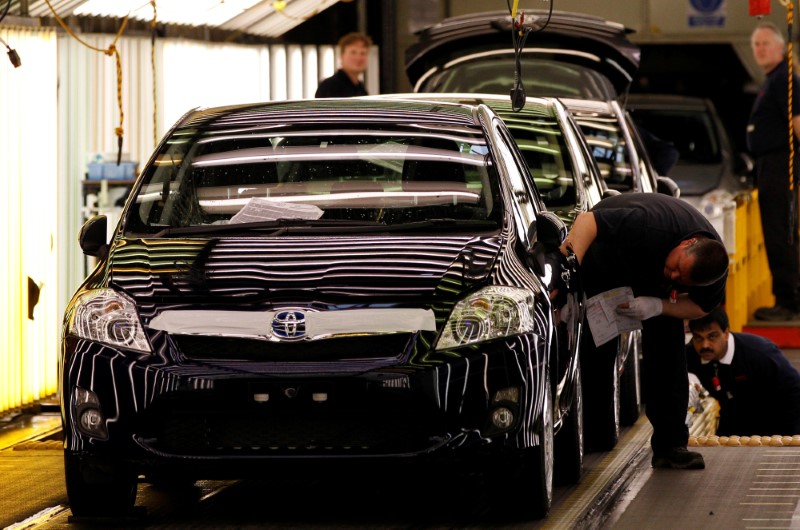Gold prices set for weekly gains on dovish Fed outlook; silver near record high
By David Milliken
LONDON (Reuters) - Growth in British factory orders slowed to its weakest in almost a year this month, a monthly survey from the Confederation of British Industry showed on Monday, though firms were working at their closest to full capacity in 20 years.
The CBI's factory order book balance unexpectedly fell this month to -2, its lowest since November 2016, from +7 in September, below all expectations in a Reuters poll that on average forecast it would rise to +9.
Output expectations fell to +19 from +28, the lowest since April, while export orders grew at the weakest since July - though both these still pointed to above-average growth.
"We've seen a general softening in manufacturing activity over the past three months, with the outlook for investment becoming more subdued," the CBI's chief economist, Rain Newton-Smith, said.
However, the Bank of England is likely to home in on the fact that firms said they were working at their closest to full capacity since October 1997, as it considers whether to raise interest rates next week.
"While October's survey was disappointingly weak, it doesn't change the picture of the manufacturing sector on course for a better performance than in recent years," Andrew Wishart of Capital Economics said.
The Bank fears domestic inflation pressures are likely to increase due to capacity constraints - partly due to the effect of Brexit on immigration - and the CBI said firms reported the biggest shortage of unskilled labour since July 2004.
Earlier on Monday, it emerged that the CBI and four other major business organisations are drafting a letter urging Britain's government to secure urgently a Brexit transition deal or risk losing jobs and investment.
Quarterly data published by the CBI alongside the monthly factory orders figures showed businesses plan to invest in new buildings at the slowest rate since July 2009. However, plans for investment in machinery, research and development and staff training were at or above past average levels.
Overall, optimism about the business situation was its weakest since just after last year's Brexit vote.
